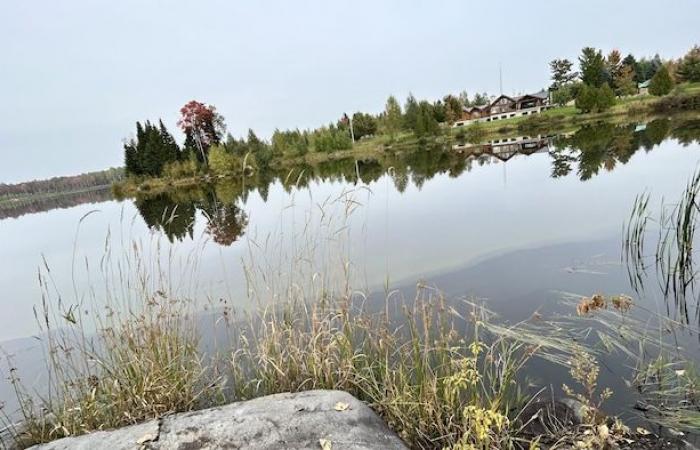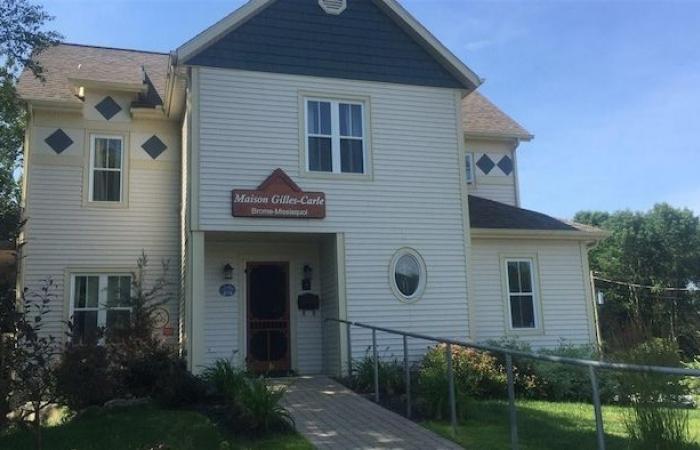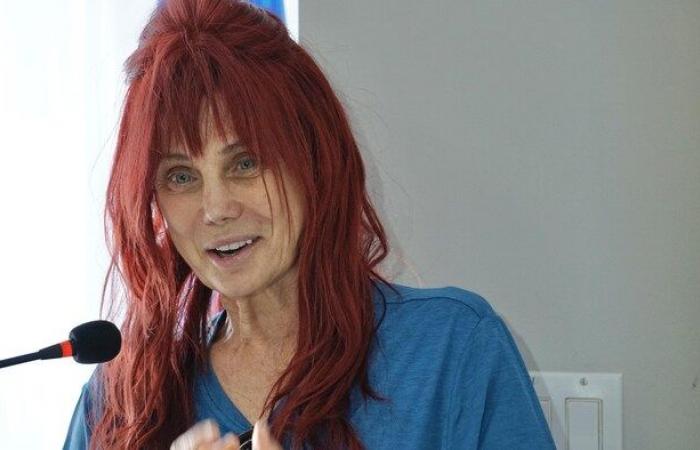The Gilles-Carle respite house in Saint-René, in Beauce, will ultimately not reopen its doors, after a closure first announced as temporary a year ago, due to lack of staff. Several of these accommodation centers are experiencing difficulties and there is still work to be done before we see a Gilles-Carle house set up again in Chaudière-Appalaches.
These homes serve as temporary accommodation for people losing their autonomy in order to provide periods of respite for their caregivers.
With 11 beds, that of Saint-René was the first in Chaudière-Appalaches. In September 2023, only 2 of the 12 positions that would have ensured adequate service at home were filled. The decision to close it permanently was taken at the end of December.
The decision was taken in joint agreement with the Alzheimer’s Society [le partenaire d’opération de la maison]but with the objective of continuing to work to bring this service back to our region and to take the time to work on it, then find the right conditions for it to work
supports Julie Émond, the director of home support and community partnership at the CISSS de Chaudière-Appalaches.
Of course, at the beginning, we thought we would be able to really reopen more quickly.
she adds to explain the fact that there was no official closure announcement.
Open in full screen mode
The Gilles-Carle house in Saint-René was located in the countryside, on the edge of a lake, which also made it difficult to access.
Photo : Radio-Canada / Vincent Archambault Cantin
In the meantime, the activities have been moved and distributed to other establishments in Chaudière-Appalaches, assures the CAQ MP for Beauce-Sud, Samuel Poulin, who is also a founding member of the Gilles-Carle house in Saint-René.
The financial sums of our government are still there. We are working on a new sustainable formula, more accessible for citizens, at the request of users and employees.
he responds in writing.
We have many other respite services in our region, this was not the only one
relates Julie Émond. She mentions day centers, certain community organizations, such as Baluchon Alzheimer, which send people home, and certain temporary places in CHSLDs and private residences.
Accumulation of difficulties
The lack of staff was not the only problem facing the Saint-René house.
Only 74 people used its services at different times as it was temporary accommodation. We occupied approximately 4 to 7 places out of 11 places available in the resource. It varied, but it was an average occupancy rate of 50%. This is the first element that concerned us
underlines the director of home support at the CISSS.
According to her, the choice of location had a lot to do with it. It’s still a super beautiful place that was chosen, which is very relaxing, but still with a little more rural conditions.
notes Julie Émond.
Travel could become more difficult given the size of the territory it served. We realized that, when we are a little further away for the customers who use it, it is a little more difficult for them
says the director.
Questions about the model
Three Gilles-Carle houses have already had to close in the province for reasons similar to that of Saint-René and other houses are in difficulty. For example, the services of those in Montreal and Lac-Beauport are suspended according to the organization’s website.
Open in full screen mode
The Maison Gilles-Carle Foundation inaugurated its first house in 2012 in Cowansville with the aim of offering respite to natural caregivers.
Photo: Radio-Canada / Marie-Hélène Rousseau
Suzanne Girard, president and CEO of the Association of Caregivers of the Capitale-Nationale, doubts that this is the right model to favor. She has already worked on a Gilles-Carle house project which never saw the light of day in the Portneuf area.
What I know of as a need in our society is respite at home. It was a great project, but it’s like building and taking charge of a mini-CHSLD with staff, with technical support and all day, evening and night
she notes.
For Julie Émond, the diversity of offering is relevant. It takes a varied offering. Sometimes, yes, just the fact of going to drive the user back is an additional burden for the caregiver, so they want to have respite at home. On the other hand, some need to be at home without the burden of always being in demand
relate-t-elle.
Increased funding
For Suzanne Girard, home respite would cost the State much less. While we have someone monitoring the sick person, the caregiver can go on vacation, we can go to rest and we don’t need to redo the roof
she illustrates.
A vision opposed to that of Chloé Sainte-Marie, who was a caregiver for her partner, the filmmaker Gilles Carle, and who is vice-president of the Maison Gilles-Carle Foundation.

Open in full screen mode
Actress and singer Chloé Sainte-Marie makes listening to helping people her hobby horse.
Photo : Radio-Canada / Jean-Francois Deschenes
We take the sick person out of the house and let the caregiver rest at home, that’s the revolution.
she pleads. We are the continuum of home care. And the fact of doing that avoids putting people in the hospital or in CHSLD. So it costs the State much less.
The co-founder of the foundation has been asking the Quebec government for several years for an increase of $25,000 in funding per bed. In April his wish was granted with additional funding of $1.6 million annually. The government therefore gives $30,000 more per bed for a total of $80,000.
Since then, Maison Gilles-Carle Gaspésie has been able to reopen in part thanks to increased funding. The CISSS de Chaudière-Appalaches also hopes to take advantage of the opportunity to relaunch a more viable project than that of Saint-René.
When coming to power in 2018, the Legault government committed to supporting the construction of 20 Gilles-Carle houses within 10 years. To date, the foundation lists six that are still in operation.
Chloé Sainte-Marie now wants the Gilles-Carle houses to be recognized in the eyes of the law in the same way as the CHSLD and seniors’ homes to be able, for example, to settle in residential neighborhoods. She is convinced that such a provision could make it possible to open several more in the province.
In the meantime, no timetable is planned for an upcoming reopening in Chaudière-Appalaches. The office of the Minister responsible for Seniors and Minister for Health, Sonia Bélanger, also ensures that it is participating in the effort.
We are in contact with the CISSS and community partners to find a viable solution. Supporting caregivers has become more necessary than ever and we are working to improve respite services in all regions of Quebec
responds the cabinet spokesperson in writing.
With information from Louis-Simon Lapointe.








